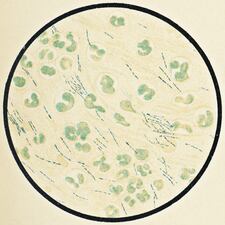The Centers for Disease Control and Prevention is warning that a bacteria with a nearly 50% fatality rate worldwide has been found along the U.S. Gulf Coast.
The CDC has confirmed three cases of infection from the bacteria Burkholderia pseudomallei, which can cause potentially lethal melioidosis if not treated.
“It is an environmental organism that lives naturally in the soil, and typically freshwater in certain areas around the world. Mostly in subtropical and tropical climates,” Julia Petras, an epidemic intelligence service officer with CDC’s National Center for Emerging and Zoonotic Infectious Diseases, told HealthDay News.
The three cases have been reported in Mississippi, the latest in January of this year and the other two in May and July of 2020. In all three cases, the people who contracted melioidosis recovered.
The most common ways the bacterium infects people is through open wounds or by being inhaled during a severe storm with high winds, according to the CDC. It can also be ingested by drinking contaminated water, Petras added.
Once inside the body, the bacterium attack organs, causing abscesses.
People with underlying conditions such as kidney disease or diabetes are most at risk from the bacterium.
“Excessive alcohol use is also a known risk factor, and binge drinking has actually been associated with cases as well from endemic areas,” Petras said.
Symptoms vary depending on what part of the body the bacterium is attacking and include:
Localized Infection:
Localized pain or swelling
Fever
Ulceration
Abscess
Pulmonary Infection:
Cough
Chest pain
High fever
Headache
Anorexia
Bloodstream Infection:
Fever
Headache
Respiratory distress
Abdominal discomfort
Joint pain
Disorientation
Disseminated Infection:
Fever
Weight loss
Stomach or chest pain
Muscle or joint pain
Headache
Central nervous system/brain infection
Seizures
The CDC says the bacterium is endemic to the U.S. Gulf Coast, meaning “a constant amount of that specific disease is present in a geographic location, like a state or country.”

